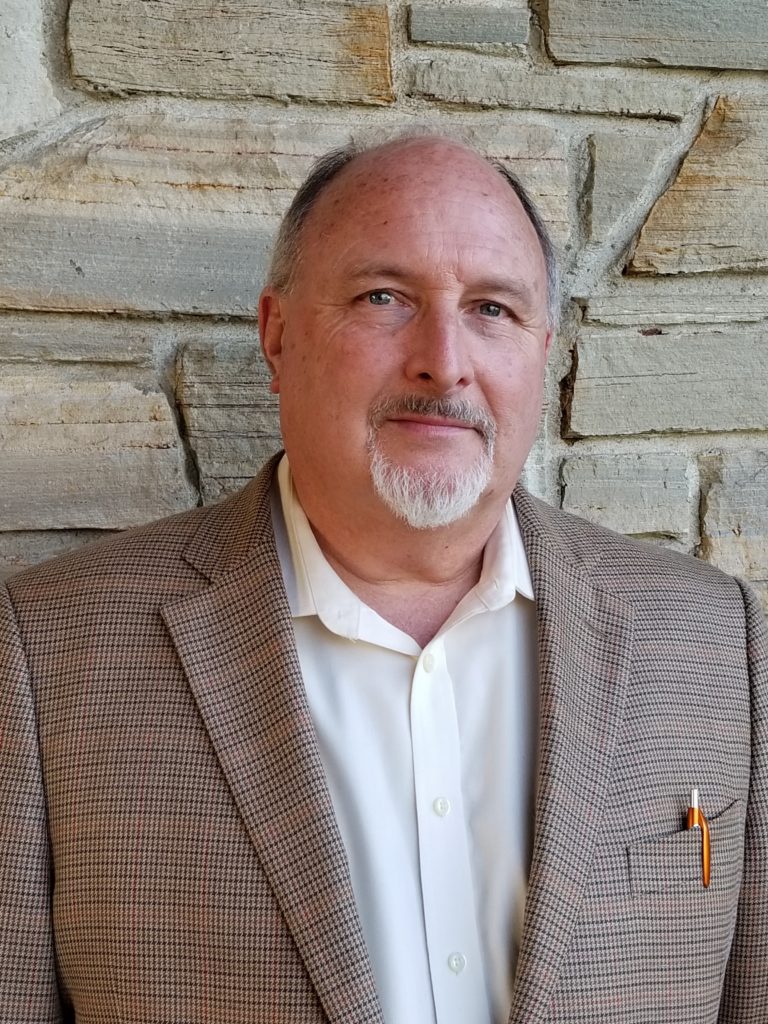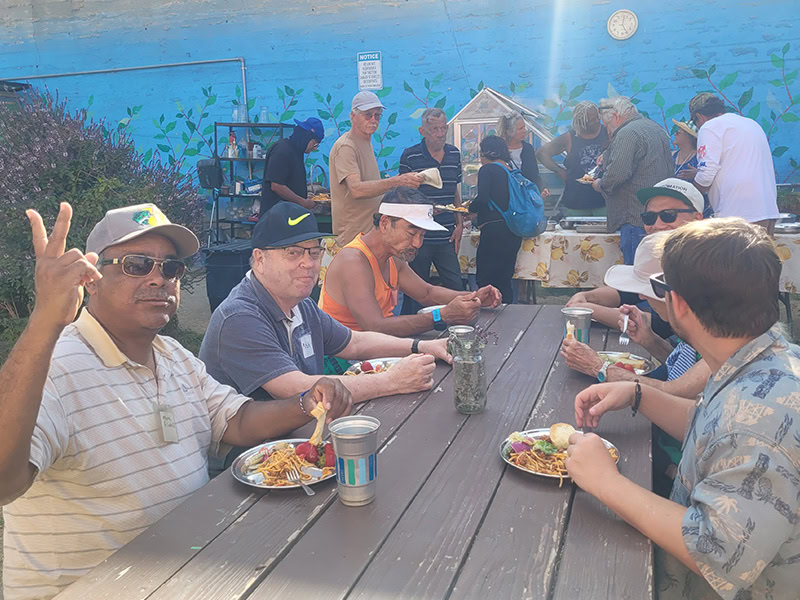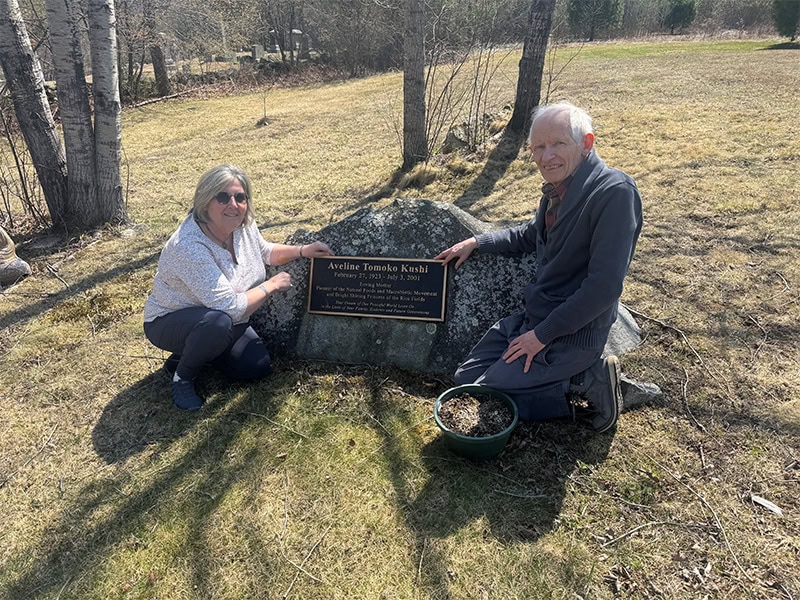Written by Jim Lawrence
At the upcoming annual convention, a proposed Standing Resolution of welcome and support of all people in the LGBTQ+ community will be brought to the floor. Our Church has striven to understand and address the emerging and changing world of sexuality and gender identities that has profoundly characterized our times. I would like to lift up the theological and spiritual reflection that has occurred, in official and published ways, over the past several decades.
1979: Council of Ministers Statement on “The Conjugial Principle and Human Sexuality”
In the late 1970s, an openly gay ordinand—a fourth-generation Swedenborgian named Paul Giunta, raised in and an active member of the Cambridge Church—was admitted to the Swedenborg School of Religion but with no promise that ordination would be available, since the specific question had never been faced. To inform the journey, the Council of Ministers shaped a year-long study of relevant theological, biblical, and spiritual questions raised by evolving public journeys with sexual orientation. That ad hoc study committee was chaired by the professor of pastoral care and counseling, Rev. Dr. Calvin E. Turley, who was joined by Rev. Dr. Dorothea Harvey, Rev. Dr. George Dole, Rev. Randy Laakko, and Rev. Richard H. Tafel, Jr. Their report to the Council of Ministers in 1978 was reworked by Rev. Cal Turley into a further position paper, “The Conjugial Principle and Human Sexuality” the following year that was widely shared in the church. As circumstances unfolded, Paul Giunta lost his life in a violent attack days before the convention in 1980 when he was to come up for an ordination vote. Though that vote and ultimate conversation was thwarted at that time, an important exploration of meaning and purpose for the changes occurring in public awareness around human sexuality had begun with careful thought.
Rev. Cal Turley’s widely read position paper emphasizes the limitations of regarding sexuality as only for the purpose of procreation and argues instead “the central emphasis must be on nurturing human souls,” which can take a variety of healthy and spiritually nourishing forms. The eleven-page, single-spaced paper concludes with these words:
The conjugial principle of dynamic, creative interrelatedness and relationship is not limited to anyone, single definition or expression of commitment between persons. It is not limited in its expression to any one specifically defined means of genital relating; nor is it limited to any one specific purpose of procreation. Rather, the Divine Conjugial is a symbol of the very essence of life, the unitive process which can and does manifest itself in a multitude of varieties which we can only dimly perceive and before which we stand in humble awe.
1986: Resolution on Whom We Ordain
It is important to remember that 1975 was the year the first woman became ordained in any branch of Swedenborgianism in the world, and though there was no vote in 1980 on a popular, skillful, and openly gay candidate, the Council of Ministers continued to encourage discussions on the right foundations for ordination. Increasingly, broad agreement developed for the position that the qualities for ordination are internal qualities and are not affected positively or negatively on external sociological factors. In a resolution, whose primary author was Rev. Dr. George Dole, a foundational statement was endorsed at the 1986 convention. Here’s the pivotal language:
Periodically during its history, Convention has faced issues of suitability for ministry. It has dealt with questions of social class, race, divorce, and gender, as it currently faces the issues of sexual orientation and may in future years face questions presently unseen. Its decisions have in each case affirmed a consistent principle, which the Council of Ministers expresses as follows:
“In light of the inclusiveness of the vision of the Holy City, New Jerusalem, from which our theological perspective is drawn, the Council of Ministers believes that the central consideration in evaluating requests for ordination is the quality of the ministry that it believes the individual is capable of providing.”
In other words, in the Swedenborgian Church of North America, we assess inner qualities of training and readiness for excellent service as the relevant considerations—the Church does not regard external and social aspects of personal definition to be relevant considerations.
1997: First Vote on an Openly Gay Candidate for Ordination
In 1993, a lifelong member of Convention who grew up in the Elmwood Church, Jonathan Mitchell, was accepted into the ministry program at the Swedenborg School of Religion. The support for those identifying homosexual seemed strong by then in the Church, and no significant resistance appeared. That probably explains why no formal denominational statements were shaped. The editor of Studia Swedenborgiana, Rev. Dr. Bill Woofenden, commissioned two ministers to publish articles looking at theological dimensions of gender and sexuality, which led to “The Role of Gender in Marriage: A Swedenborgian View” by Rev. Carl E. Yenetchi and “The Spiritual Origin of Sexuality and Gender,” by Rev. John K. Billings. The editor of the Messenger, Patte LeVan, commissioned what became a two-part article by me, Rev. Dr. Jim Lawrence, “Risking on the Side of Compassion” and “Further Thoughts on the Gay Marriage Commentary” spurred by the vigorous response to the first article. The ordination vote on Jonathan Mitchell passed overwhelmingly in both the Council of Ministers and on the floor of convention, and there have been several subsequent ordinations of openly gay candidates since.
2004: Denominational Statement on Same-Sex Marriage
With the rise of social and political discourse and action in the arena of legalizing same-sex marriages, in 2003 the Church of the Good Shepherd in Kitchener, Ontario, asked the Council of Ministers for guidance on whether to support same-sex marriage ceremonies in their church. In response, the Council of Ministers appointed Rev. Paul Zacharias, Rev. Dr. Jonathan Mitchell, Rev. Kit Billings, and Rev. Kim Hinrichs (as chair) to serve as a task force to study relevant issues and questions and come back the following year with a report and possible recommendation(s). This process led to a formal “Denominational Statement on Same-Sex Marriage,” adopted at the 2004 annual convention. This statement was fundamentally supportive spiritually and politically of legalizing same-sex marriages and of celebrating same-sex marriages in Swedenborgian churches. However, it also affirmed the congregational polity of the denomination and affirmed the right of all congregations to make their own final decisions on whether to hold same-sex marriage ceremonies in their own churches.
2022: Proposal for a Standing Resolution of Welcome and Support of All People in the LGBTQ+ (Lesbian, Gay, Bisexual, Transgender, Queer, Plus) Community
In the nearly two decades since the statement on same-sex marriage, the issues of gender identity and sexuality have continued to grow in significance in cultural discourse around not only social justice issues but also in spirituality studies. The awareness level in our contemporary moment is much higher than two decades ago, and many people exploring spiritual programs and movements often look explicitly for information on where a particular denomination stands. This is especially true of the younger generations. For this reason, the need for a formal public relations statement has grown for many in the Swedenborgian Church of North America, and we will have a chance to discuss the resolution that has been shaped not only by the Social Justice Committee but with the help of several others, including me. I am in support of this proposed resolution both because of its message and of its usefulness for describing a broadly held commitment throughout our denomination and communicating such to those asking the question.
Read the full issue of the May 2022 Messenger

Meet Rev. Dr. Jim Lawrence
Rev. Dr. Jim Lawrence has been the Dean of the Center for Swedenborgian Studies for over 20 years. He is the president-elect of the Swedenborgian Church of North America.



